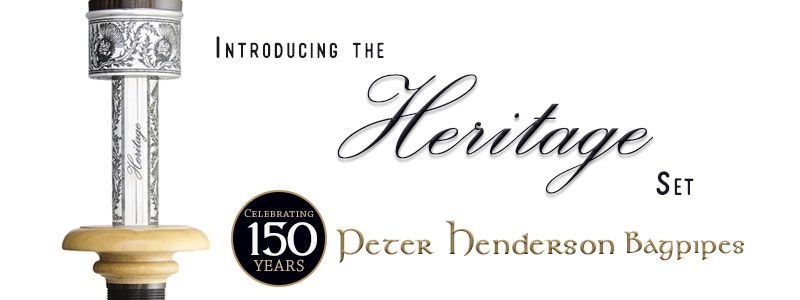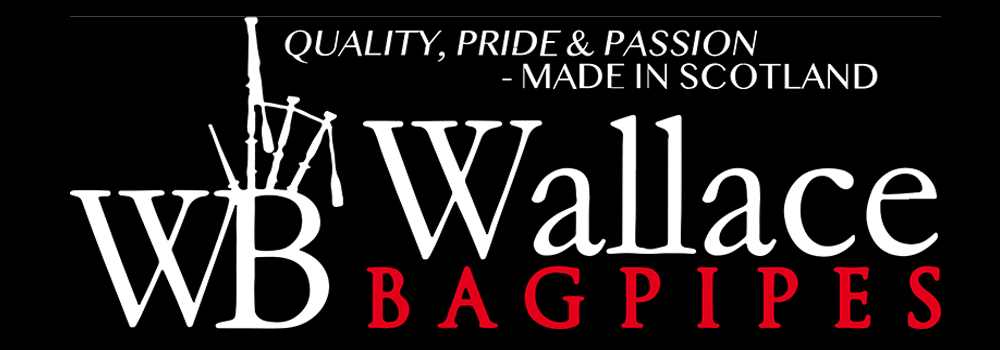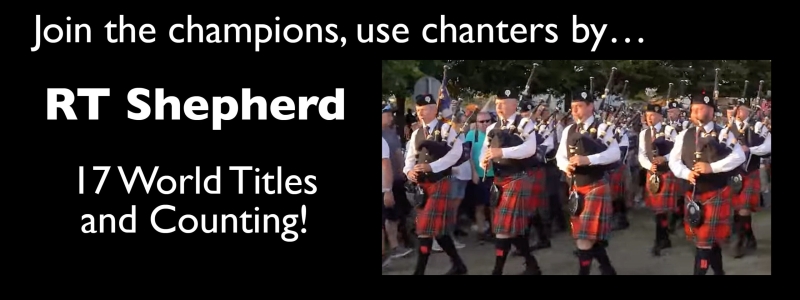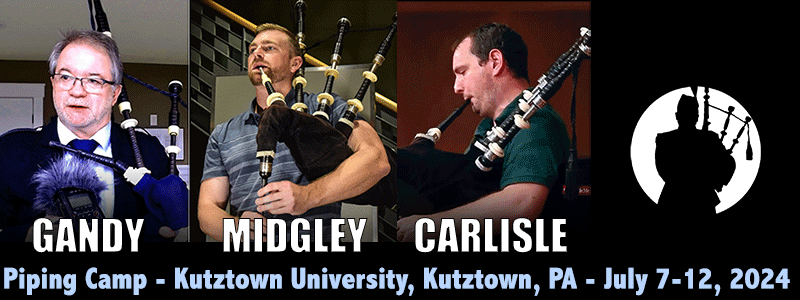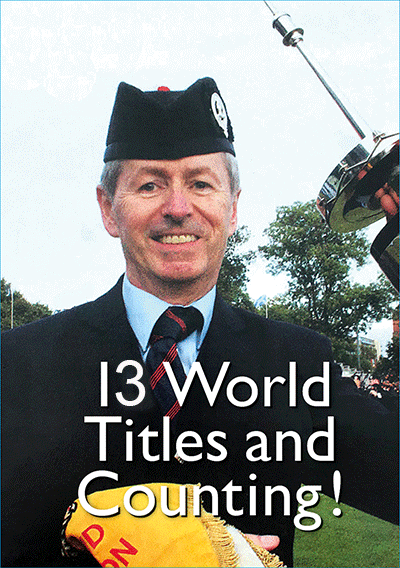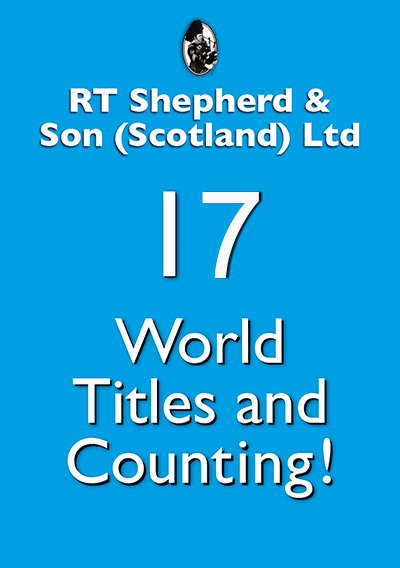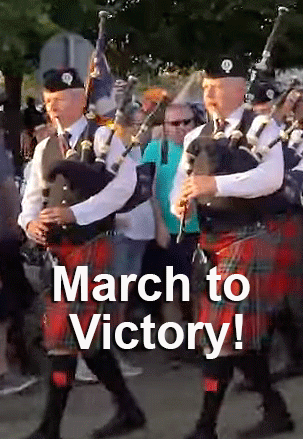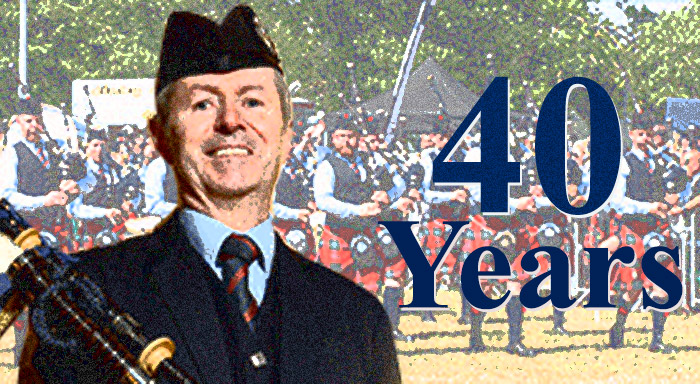
In this, the third part of this illuminating series, P/M Richard Parkes answers with honesty and candour some questions from our editor Robert Wallace. Richard talks of the first changes he made at FMM, his confidence in being able to do the job, and some of the mistakes he made along the way…..
Before you took over FMM did you always fancy being P/M?
I always had an ambition to be a pipe major even from a young age. I was always watching and trying to learn from what other successful P/Ms were doing on competition days. My first visit to a major was at Cowal in 1975 and I was amazed by the top grade one bands. I had heard recordings before but this was my first live experience of the top bands and it blew me away.
Who approached you?
I had been appointed P/Sgt of F/M in 1981 and due to an internal disagreement, the P/M ended up leaving the band in mid season, about six weeks prior to the Worlds. So I inherited the job as a 21 year old. The band were in Grade 2 at that time.
[wds id=”2″]
Did you have any caveats to accepting the job?
No; I was keen and excited to take the job on. We were left with eight pipers and after the P/M left we decided to continue on with our plans for the Worlds.
What were the first changes you instituted?
I had the idea that, in order to be successful in Grade 2, the first thing was to have a good sound and play attractive material that was within the capability of all the players. This would improve the chances of maintaining the sound throughout the performance.
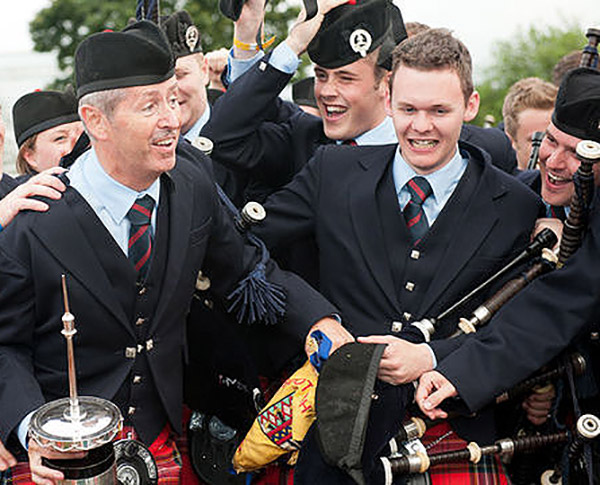
I believed that the material that we were playing that season was too difficult for some of the players so I changed a few areas of the medley to simplify it. I also put my stamp on the sound of the band by developing a method of setting the band up which I had in my head from watching and learning from others.
The changes were successful and we went on to gain second place in Grade 2 at the Worlds in Aberdeen in 1981. That was a very important result in the bands history as it gave everyone a belief in my ability after taking over mid-season.
Were you always confident in your ability to bring success to the band?
I was confident in my ability to produce a good sound, but it takes a lot more than that to bring success, and I was well aware of that. My plan was to make the band attractive for players to join by not only producing a good sound but by also playing music that would be appealing.
The process worked and we developed to a stage in 1985 that we won the Scottish, took third at Cowal and a disappointing sixth place at the Worlds in Grade 2.
That sixth at the Worlds was a learning experience for me as during the final tuning (which I did by myself at that stage of our development), three of the bass drones of the pipe corps (approx. 11 pipers) had stopped.
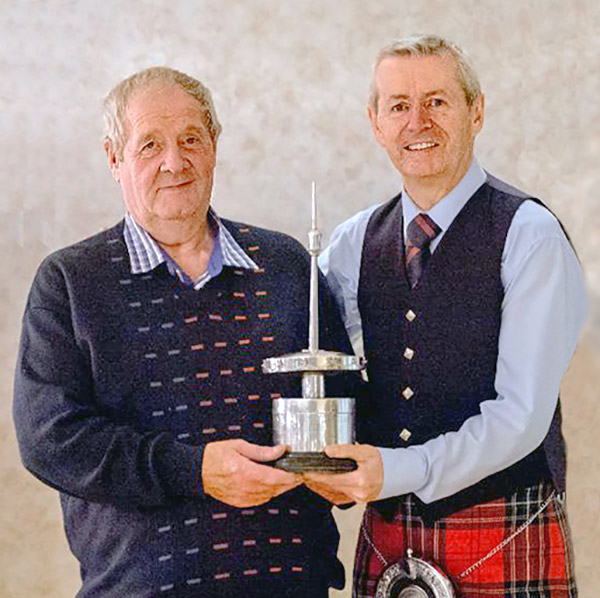
Andrew Wright was one of the piping judges that day and I remember that he wrote on the sheet ‘what has happened to the bass drone sound of this band?’
My analysis was, that either we blew too long on the day, or the bass drones reeds didn’t have enough body.
After that I made sure that everyone’s bass drone reeds were opened up to ensure it didn’t happen again. All part of the learning process.
At the end of the 1985 season, due to our consistency at home and our performances at majors in the preceding few years, the band got promoted to Grade 1. This was, obviously, a significant step in the band’s progression to the top.
What mistakes did you make early on and how did you correct them?
I learned quite early on about optimising tuning time prior to competing. Some early mistakes were playing too long in wet conditions or conversely in sunny, hot conditions.
So, through experience and getting it wrong on many occasions, I gained the knowledge of optimum tuning times for various weather conditions.
I also learned a lot about managing people in the earlier days. I was a young P/M, most of the players were older than me and I had to give everyone the respect they deserved but needed to make sure they followed my direction.
Again I got this wrong on a few occasions but this helped shape my leadership style throughout the years.
[wds id=”9″]


